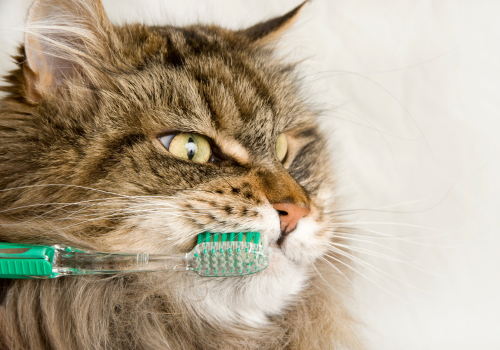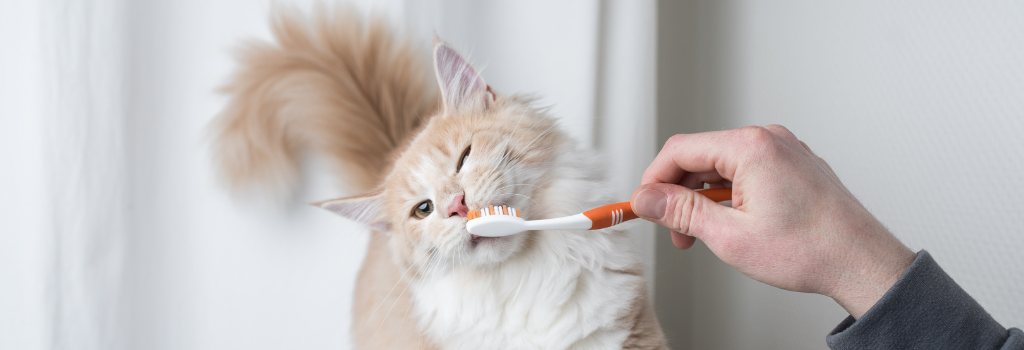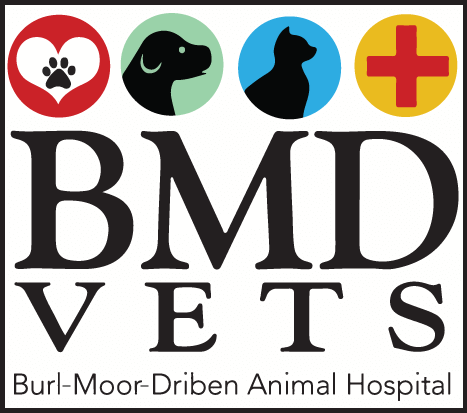Cat dentistry is something that veterinarians wish was more widely discussed. Cat dentistry is something that veterinarians wish was more widely discussed, and the benefits of preventive care for the sake of your precious pet are touted. As you’ve turned to the internet for answers, you’ve shown that you want to be the best cat parent you can be, and we’re glad you found us. At Burl-Moor-Driben Animal Hospital, we work extremely hard to get you the accurate information you need to keep your cat healthy. There is a lot of information out there about caring for your cat's dental needs, and you may not know where to turn for the best advice. That’s why we’ve taken the most frequently asked questions about cat dentistry and answered them thoroughly and accurately to help your furry feline live a long, happy, and healthy life by your side.
If you’re looking for a highly trained veterinarian in the South Jersey/Philly Area we’d love to help you care for your cat and any other pets that you have. The first order of business is to get your cat in for their dental exam to ensure they don’t have any potentially harmful disease hiding in their mouth, so please call us right away at (856) 409-7179.
 How does dental health impact the overall health and well-being of my cat?
How does dental health impact the overall health and well-being of my cat?
Good dental health impacts overall cat health in much the same way that it does with humans. The teeth affect everything that goes on inside the body. If the teeth are infected and gums are inflamed, that will have an impact on their appetite and how well they eat. The bacteria that form on the surface of the teeth can get into the bloodstream and affect things like the heart, kidneys, and liver. In sum, an infected mouth can negatively impact many organs in the cat's body.
Cats instinctively hide pain and discomfort. When cats have dental disease, a bad tooth, gingivitis, or any sort of mouth pain, it can be hard to detect that. Pain affects their overall quality of life. Cats with a painful mouth will often hide it until it's gotten to the point where they can't hide it any longer.
What are some possible conditions caused by poor cat dental health, and what are the treatments?
Gingivitis is something that cats can experience, but they can also get resorptive lesions which are essentially cavities. This is a condition in which the cat’s body resorbs the root of the teeth and the enamel breaks down. They’re very painful and can be difficult to diagnose, which is why dental x-rays are beneficial. In cats with really infected mouths, we can run into kidney or liver infection/disease, as well as complications with the heart. Bacterial shedding from the mouth into the body can affect many other organs, which is why we recommend doing routine blood work before we go into any anesthetic procedure. In general, the conditions caused by poor dental health are pain, infection, and poor quality of life for your cat.
Treatments vary based on what you find—gingivitis, periodontal disease, loose teeth, and sore or swollen gums are common problems we find during cat dental exams. Some of the more severe things are broken teeth. Veterinarians treat gingivitis and tartar buildup with a dental cleaning (similar to at your own dentist), but issues such as the aforementioned resorptive lesions, or broken teeth, often have to be extracted. So the treatment depends on the diagnosis.
What is involved in a cat Dental COHAT (Comprehensive Oral Health Assessment and Treatment)?
The first thing we do is a complete physical exam. You schedule an appointment for your cat and we look in the mouth during the exam to look for signs of dental disease or gingivitis. If there's any indication during a physical exam that we have a bad tooth or there's something abnormal in the mouth, then we move on to making an estimate for you under general anesthesia which includes a full dental cleaning.
A cat’s Dental COHAT encompasses a broad spectrum of treatments, starting with a comprehensive oral exam, dental probing, and dental x-rays to uncover any problems. If there are dental issues, we follow up with a thorough dental cleaning that features scaling, polishing, fluoride treatments, and extractions if that would be necessary.
Veterinarians should do full x-rays of the mouth during any dental procedure because the dental disease in cats is often below the gumline. So we need to take x-rays to see the roots of the teeth. Based on what we find during the procedure, the dental cleaning, and the x-rays, we call and discuss if any extractions or other treatments may be indicated and go from there based on the complete picture.
What are some signs and symptoms of issues with oral health in my cat?
Sometimes you'll see a kitty favoring a part of their mouth, so they're chewing and holding their head to one side. Sometimes they drop food and other times they don't want to eat at all. And if you have a friendly kitty at home that will let you look, you might notice that their gums seem red or inflamed.
Some other common signs of oral health issues in cats are:
- Drooling, and sometimes the drool can have some blood tinge to it
- Cats can also sometimes have a puffy mouth if there's inflammation or gingivitis
- Cats might paw at their face or become head shy if they have a painful tooth
- Excessive grooming
- Halitosis (bad breath odor)
If the oral health issues are serious, the cat may even experience vomiting and/or diarrhea. And then, if it goes on long enough and we don't pick up on some of those more subtle symptoms, we can even see things like weight loss occur. Various stages of dental tartar build up and/or periodontal disease can manifest. And as well as other cats can also get tumors and growths. Whether these tumors are malignant or benign can affect the mouth, gingival tissue, teeth, and bone.
The best at home way to prevent these issues is by brushing your cat's teeth. Brushing doesn't work for you because of your cat's personality or your schedule, there are many other things we can consider, too—such as certain dental chews or treats. The Veterinary Oral Health Council (VOHC.org) has many treats that a veterinary dentist approves, such as Greenies and other brands. There are even water additives or wipes that you can use right on the cat’s teeth.

If you still have questions about the importance of cat dentistry or if your cat is due for a dental exam, we are here to help. As your cat’s veterinarian in Moorestown, NJ, we are more than happy to discuss their dental needs and any other concerns you may have. So, please don’t hesitate to call us at (856) 409-7179 or email us at [email protected].

